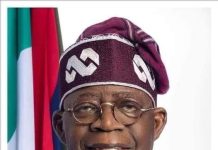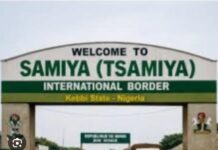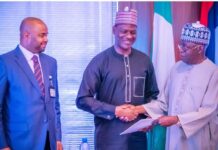
In a recent interview published in the second edition of The Interview magazine, a new monthly publication, Pastor Tunde Bakare, in his usual holier than thou and I-know it – all attitude, while answering a question that bothers on political leadership in Yoruba land, arrogantly made some spurious remarks about the former governor of Lagos State, Asiwaju Bola Tinubu.
Indeed, in a tone akin to that of the Almighty God, Tunde Bakare concluded that Tinubu can never be as great as Awolowo. It has taken me a little to formally react to Bakare’s recent tirade on Tinubu because of my belief that it’s really not worth it. However, for an academic and intellectual purpose, I think it is expedient for me to express my thoughts on the issue with the hope that it would elicit further healthy and robust intellectual discourse.
Now, I would love to start by making some fundamental clarifications. First, like every other politically conscious Nigerian, I have a great respect for the late sage, Chief Obafemi Awolowo. He was truly a pathfinder, and a visionary leader of great repute. Secondly, Asiwaju Bola Ahmed Tinubu, an illustrious Yoruba son and a great leader in his own right, has great deference for Chief Awolowo. Third, Tinubu has not, for once, claimed to be the leader of the Yoruba race. Fourth, Tinubu has never, at any time equated himself with Awolowo; neither has he ever claimed that he was greater than the late sage.
Having made those relevant clarifications, let me now address some fundamental issues raised by Bakare in the said interview. First, in-spite of all his accomplishments as a political leader and a nationalist, it is wrong for anyone to declare that nobody can surpass Awolowo’s political leadership’s feat. I sincerely believe that Awolowo himself would not nurse such wishes h in his grave. Over the years, in all spheres of human endeavours, different people come up at the different time to create all sorts of records. However, the good thing is that no record lasts forever. It is only the Almighty God that actually occupies the class that Bakare was trying to equate with Awolowo.
Second, every age or generation produces its own leaders, and every age differs from one to another. Thus, there is no basis of comparison between Awolowo and Tinubu because they belong to different ages. Hence, the circumstances of their leadership challenges and influence differ. When Awolowo emerged as the numero uno political leader of the defunct western region, the political system was anchored on regionalism and parliamentary system of government. Thus, the whole of the western region was a single political entity.
Furthermore, the political structure and culture of the Awolowo age were fundamentally different from what obtains presently. The question now is: If Awolowo were to belong to the present political dispensation, would he have fitted into the current political tendencies? Likewise, it is quite doubtful if Tinubu too would fit into the politics of the first Republic.
The underlining argument here is that no political leader can fit into the political arrangement of all ages.
Consequently, Awolowo was a great political figure in his time while Tinubu is, no doubt, a political colossus of the present age. Initially, especially immediately after the death of Awolowo, some of his political associates were using his political clout to leverage for political accomplishment. But, as time goes by, Awolowo’s political influence began to wane in electioneering calculations. This was apparent when his daughter, Dr. Tokunbo Awolowo-Dosunmu couldn’t leverage much on her father’s reputation in her botched bid to become the Governor of Lagos State.
This does not in any way, suggest that the late sage has diminished in the political consciousness of the people. The truth, however, is that the people and the country have since moved on. New political realities have brought up new political realignment as well as fresh political leadership. Presently, some of the die-hard political associates of Awolowo belong to political platforms and tendencies that could be said to be opposed to the ideals and beliefs of the late sage. Does that, in any way, reduce the political stature of these associates? I don’t think so because they cannot continue to live under the shadow of the late sage forever. They have to contend with emerging political realities.
Now, I would love to raise the argument a little further. In politics, a leader is perceived to be successful by his accomplishments. What are the political accomplishments of Chief Awolowo? Awolowo was among the nationalists who were in the forefront of the struggle for Nigerian independence. With some of his political associates, he formed a political party, the Action Group, AG, which dominated the political scene in the defunct western region. As Premier of the Western region, Awolowo not only introduced free education, which helped in accelerating socio-economic development in the region, he equally scored many firsts both in the country and in Africa. The present Nigeria Television Authority, NTA, is an offshoot of the defunct Western Nigeria Broadcasting Corporation, the first of its kind initiated by Awolowo.
The Liberty Stadium, Cocoa House and Obafemi Awolowo University, Ile-Ife, are some of the enduring legacies of the Awolowo premiership in the defunct western region.
Politically, Awolowo contested to be Nigerian president twice, under the umbrella of the defunct Unity Party of Nigeria, UPN, but he lost on the two occasions. Awolowo tried unsuccessfully to bring opposition parties together in order to achieve his dream of ascending the presidency. His dominant of the politics of Yoruba land was challenged by the defunct National Party of Nigeria, NPN, in 1983, when the NPN controversially won gubernatorial elections in the old Oyo, Ondo and Bendel States. Awolowo remained a dominant political figure in Yoruba land, but he was, by and large, a regional political leader until his death in 1987.
But then, Tinubu is not all about boldness without vision. He combines a bold heart with a sound mind. He is blessed with an unusually sharp and uncanny mind. Tinubu’s intellectual prowess is legendary. He is a deep thinker and a pragmatic philosopher. He combines unbelievable intellectual depth with amazing spiritual profundity. His bat like full-size eyes prods deeply at everything in sight with the calculated precision of a predator going after its prey. They are, perhaps, responsible for the depth of his vision. Tinubu sees far ahead of time.
Impossibility is a common word in the dictum of fidgety and skeptical souls that abandon their visions in the face of the slightest challenge. However, for Tinubu, impossibility is a doorway to possibilities. Hence, he sees profound opportunities in every seeming impossibility. Prior to the successful merger of the various political parties that transformed into the All Progressive Congress, APC, merging of political parties had never been a successful venture in the country’s political terrain. In the Second Republic, for instance, the progressives led by the late sage, Chief Obafemi Awolowo, Dr. Nnamdi Azikiwe, Alhaji Aminu Kano, Alhaji Waziri Ibrahim and others tried fruitlessly to form a formidable progressive inclined political party that could wrestle power from the then ruling National Party of Nigeria, NPN. Several meetings were held by these frontline leaders of the progressives at that time but with insignificant success.
It was, perhaps, this history of failure by the progressives to forge a common front that initially made political observers and pundits to be skeptical about the feasibility of the APC project. Indeed, some prominent PDP members swore by their mothers and grandmothers that the merger was not going to work. However, with the unwavering and calculated focus of a lion in pursuit of its prey, Tinubu and his compatriots forged ahead like Trojans sure of their destination.
In 2003, when the Alliance for Democracy, AD, lost all its controlled states in the South West, except for Lagos, the only attractive option for Tinubu was to jump ship and move to the ruling PDP. That is the natural path in African politics because playing opposition politics in this clime is hazardous and unattractive. However, such a choice is for men with faint heart. Tinubu forged ahead and Action Congress, AC, came on board, later paving way for the emergence of the Action Congress of Nigeria, ACN. Though the road was rough and tough but with the ACN came the recovery of lost states in the south west. Now, the ACN has arrived. That was the thought of some of Tinubu’s apostles. However, like the visionary leader, he is, he knew that the journey has just started, and nothing has been won.
In order to achieve the long-term mission of the progressives in the nation’s political landscape, ACN, with its relative success must die. Thus, came the death of the ACN. The funeral ceremony took place in Lagos. However, other deaths were equally recorded along the way. The Congress for Progressive Change, CPC as well as the All Nigeria People’s Party, ANPP also died. However, these parties did not die in vain. With their death came the birth of the APC, a formidable opposition party. At last, the progressives were ready to confront the PDP for the political soul of the country. In a most keenly and fiercely contested presidential election in the political history of the country, the PDP bit the dust. Thus, ending its sixteen years of infamous and impunity laden grip on power at the centre.
Many who do not really know him bear false tales about his person. Others hate him just out of vicious envy and jealousy. However, those that are privileged to know him are conscious of his unquestionable patriotic zeal and uncommon commitment to the emancipation of the downtrodden. He has been betrayed by many who used his political influence and benevolence to achieve political success. But, for Tinubu, there is a price to pay for every prize that one desires.
As far as his adversaries are concerned, there is nothing good about Tinubu. Unfortunately, they are dead wrong. No doubt, the eight years spent in office by Tinubu, set the pace for the birth of modern Lagos. The Tinubu administration laid a solid foundation for the new Lagos that has now become a model for good governance in Nigeria. It was Tinubu’s government that set up enduring institutions such as KAI, LASTMA, LASAA, LAMATA, to mention just a few. This is aside putting in place a creative and ingenious template that has institutionalized governance in Lagos State. It was the Tinubu administration that began the systematic fixing of the State’s infrastructure. The complete regeneration of the Lagos Island Central Business District took place under Tinubu’s watch. Many roads across the State such as Kudirat Abiola Way, Lawanson-Itire road, Ikotun-Ijegun road, Ikotun –Igando road, LASU-Iyana Iba road, to mention just a few, were rehabilitated and expanded by the Tinubu administration while a comprehensive program for resuscitation of public schools in the State was also put in place. His mark in the health sector is indelible.
Perhaps, more importantly, the Tinubu administration put the State on the path of economic independence as it shored up its revenue base. Tinubu inherited a failed economy in Lagos, but by the time he was leaving office in May 2007, his administration has increased the State internal revenue base from a meager N600 million to over N8 billion. That the administration survived the Obasanjo’s onslaught was mainly due to its strong financial stand.
Unfortunately, today, mischief makers and incurable Tinubu’s haters disparage by stereotyping him with corruption. After they have failed to pull him down politically, it has now become the past time of professed Tinubu’s haters and bashers to stigmatize him with the unproven label of a corrupt politician. These days, every prime property in choice locations in Lagos and other parts of the country is owned by Tinubu. Indeed, according to the tale bearers, the whole of the Lagos economy is now under Tinubu’s control. He owns every new hotel and eatery in town. All shopping malls in Lagos belong to him. Tinubu has now become such a mysterious money bag that ‘owns’ what Dangote, the popularly acclaimed African Richest Man could not boast of.
In his tirade against Tinubu, Bakare surreptitiously made allusion to the fact that Awolowo did not build a political empire with public funds. The tendency by Bakare, and his likes is to stigmatize Tinubu with unfounded and frivolous corruption accusations. Bakare openly professed a simple mind that could not rise above the beer parlor gossips. If Tinubu is actually as corrupt as he is being tagged, it is difficult to understand why any of the anti-corruption agencies under the control of the PDP led federal government could not pin him down to any financial crime. It is an open fact that Obasanjo and Tinubu were not the best of friends. So, if the Obasanjo government could not nail Tinubu on alleged corrupt tendencies, it goes to show that something is actually missing in the whole jig saw.
The truth is that Tinubu is not a political opportunist. He has a destination. He remains committed to his political principle and aspiration. As stated earlier, in 2003, when the Alliance for Democracy, AD, lost all its controlled states in the south west, except for Lagos, the only attractive option for Tinubu was to jump ship and move to the ruling PDP. He could have made instant financial and political gains if what they are saying about him today is true. That is the natural path in African politics because playing opposition politics in this clime is hazardous and unattractive. However, such choice is for opportunists, not Tinubu.
As I draw to a close, I believe Bakare has a personal axe to grind with Tinubu. I am aware that Tinubu was opposed as a matter of reality and principle to Tunde Bakare being named the Vice Presidential candidate to Buhari in 2011 when the latter contested for the presidency under the defunct Congress for Progressive Change, CPC. Then, Tinubu’s position was anchored on two factors. The first is that Bakare has no political relevance in the politics of the South West and as such was more or less a liability to Buhari’s aspiration. Second, the defunct ACN, was in merger talk with CPC, and it was the conviction of the ACN that if it should go into the alliance, it should be the party to produce the Vice President. Considering the fact that as at that time ACN was controlling six states while CPC, a relatively new party had none, ACN leaders could not have been said to be unreasonable in their demand. CPC went into the election without ACN and the outcome simply confirmed the fact that Bakare is a political paper weight. He lost, even, in his own ward. Today, with the support of Tinubu and other progressive leaders, Buhari is the President of the country while Professor Osinbajo is the Vice President. No doubt, Bakare has every ground to be mad at Tinubu. But why bring Awolowo into a purely personal vendetta?
Raji, a public commentator writes from Lagos.





